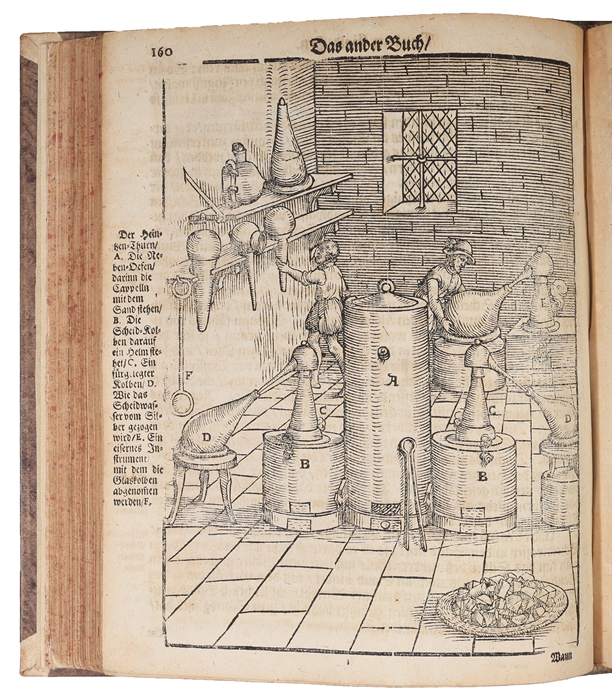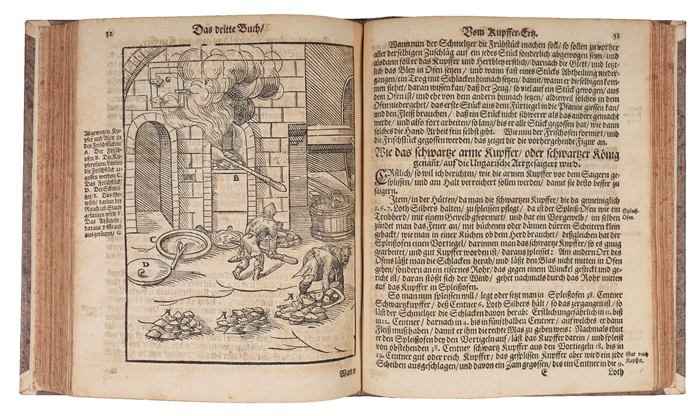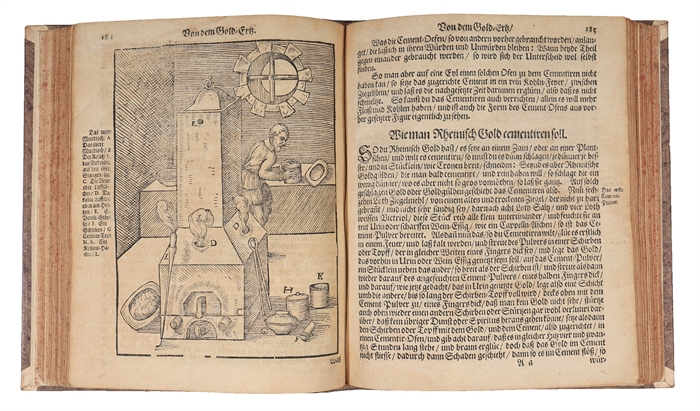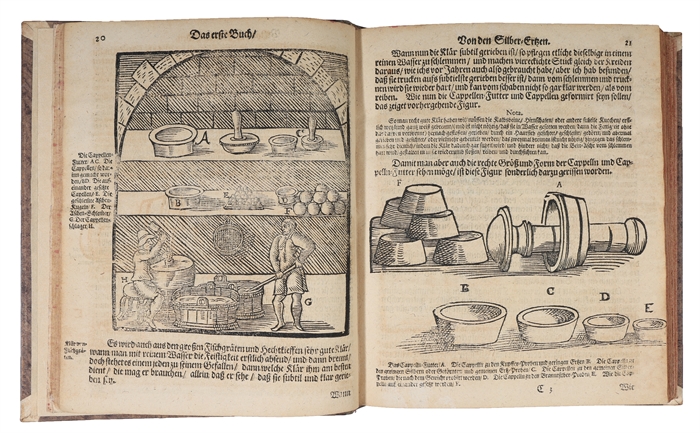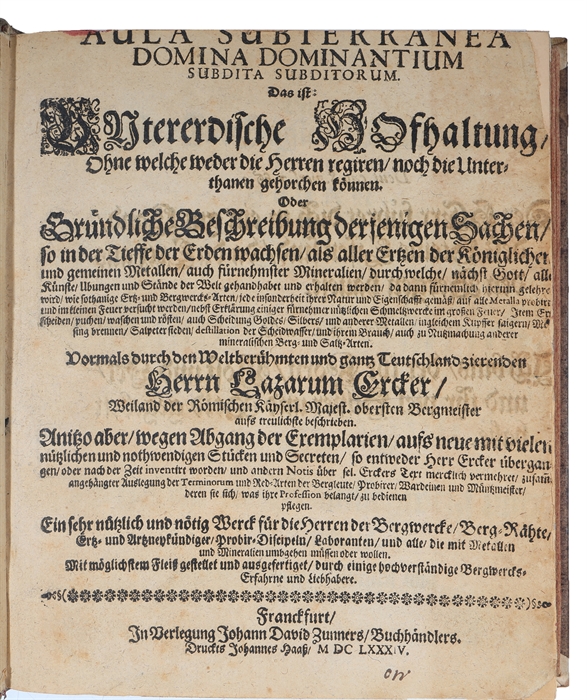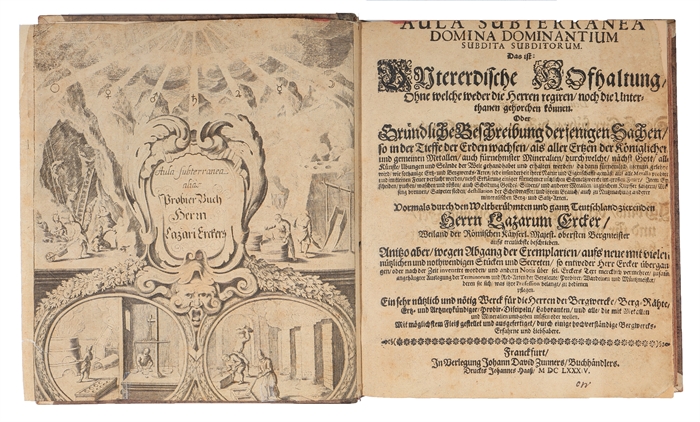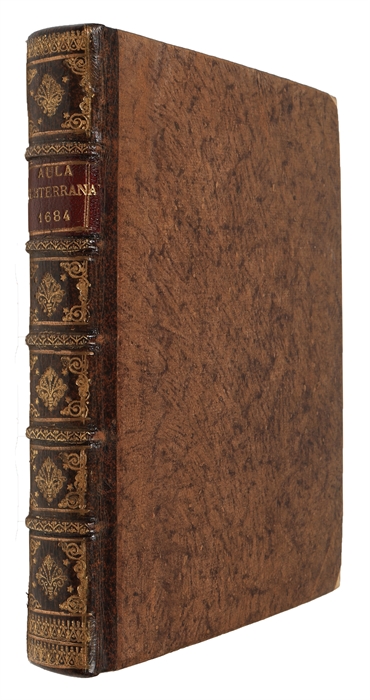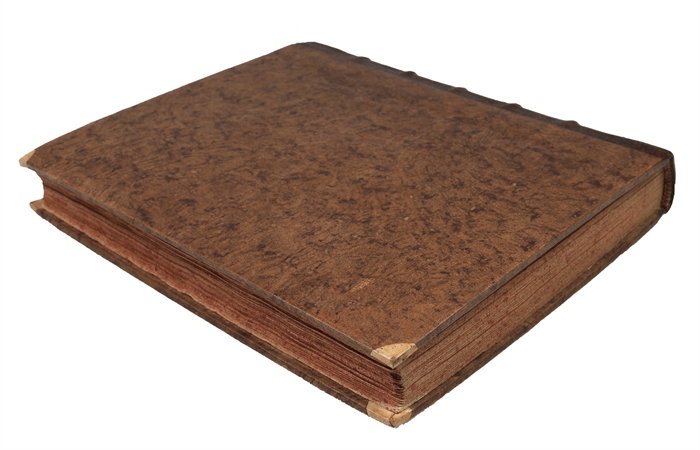“THE MOST AUTHORITATIVE CONTEMPORARY WORK ON 16TH-CENTURY METTALURGY AND ASSAYING”
ERCKER, LAZARUS (+) BEWARD, CHRISTIAN.
Aula Subterranea domina dominantium subdita subditorum (+) Interpres phraseologiae metallurgicae.
Franckfurt, Zunner, 1684 (+) Franckfurt am Mayn, Zunner, 1684.
4to (215 x 185 mm). Recently bound in a magnificent pastiche-binding of brown half calf with five raised bands and gilt red leather title-label to elaborately gilt spine. Vellum corners. The frontispiece/engraved half title trimmed with loss to upper and lower part of the plate. Closed tear to outer margin. Title-page closely trimmed with loss to first line of title. A few leaves with marginal repairs. Light occassional browning throughout, otherwise internally nice and clean. (14), 220, 123, (5), 68 pp. + folded frontispiece/engraved half title. 41 woodcut in text depicting various processes of mining and metallurgy.
Second edition, including Berward’s lexicon of mining terms, of Ercker’s seminal and beautifully illustrated work on mining and metallurgy – of immense importance to and influence upon the subject throughout the 16th and 17th centuries. Its detailed approach has made it a key reference in the history of science and technology, and its practical focus contributed to the economic development of mining regions. "Ercker's treatise is the most authoritative contemporary work on 16th-century metallurgy and assaying. Ercker gave a systematic review of methods of testing alloys and minerals and of obtaining and refining various metals, as well as methods of manufacturing acids, salts and other chemical compounds, including saltpeter. He described the apparatus and laboratory equipment used in metallurgy and assaying and gave a detailed account of laboratory methods, all of which he himself had used." (Norman) "Erker's Beschreibung may be regarded as the first manual of analytical and metallurgical chemistry. The only one of Ercker’s works to contain many drawings, it presents a systematic review of the methods of testing alloys and minerals of silver, gold, copper, antimony, mercury, bismuth, and lead; of obtaining and refining these metals, as well as of obtaining acids, salts, and other compounds. The last chapter is devoted to saltpeter. Ercker's account of the fact that zinc precipitates other metals from solutions is to be found only in the 1684 and later editions" (DSB). “Considering the importance of Ercker’s tratise it is remarkable how little is on record about him. He was inspector-general of the mine of Hungary, Transylvania, and the Tyrol, which position he held under three consecutive emperors in the sixteenth century. He book was highly prized at the time, for it was a record of practical experiences, and was not burdened with theories and hypotheses. (Ferguson). Ferguson 1, 244. (The 1736-edition).
Duveen, p. 195.
Order-nr.: 61343

